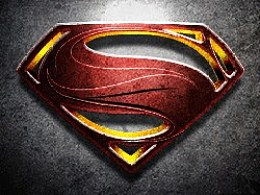Symbol of Link: A Comprehensive Overview
The symbol of link, often represented by a simple icon, holds immense significance in today’s digital age. It transcends mere connectivity and serves as a symbol of connection, collaboration, and information exchange. In this article, we delve into the various dimensions of the link symbol, exploring its origins, usage, and impact on our lives.
Origins of the Link Symbol

The concept of a link symbol dates back to the early days of the internet. As the web evolved, the need for a visual representation of connectivity became apparent. The first link symbol, often referred to as the “universal resource locator” (URL) icon, was introduced in the late 1980s. It featured a small, blue, underlined text, indicating a clickable link. Over time, this icon has evolved into the various forms we see today.
Usage of the Link Symbol

The link symbol is widely used across various platforms and applications. Here are some common scenarios where you might encounter this symbol:
-
Web browsers: The link symbol is prominently displayed next to URLs, indicating clickable links.
-
Social media platforms: Links are shared frequently on platforms like Facebook, Twitter, and Instagram, allowing users to access external content.
-
Email: Links are often included in email messages, enabling recipients to access additional information or resources.
-
Online shopping: E-commerce websites use links to direct customers to product pages, reviews, and related content.
Impact of the Link Symbol

The link symbol has had a profound impact on our lives, transforming the way we access and share information. Here are some key aspects of its impact:
Information Access
One of the most significant impacts of the link symbol is the ease of accessing information. With a simple click, users can explore a vast array of content, from news articles to educational resources. This has democratized knowledge, making it more accessible to people worldwide.
Collaboration
The link symbol has also facilitated collaboration among individuals and organizations. By sharing links, people can easily collaborate on projects, share ideas, and work together remotely. This has been particularly beneficial for remote teams and global collaborations.
Business and Marketing
In the realm of business and marketing, the link symbol plays a crucial role. Companies use links to drive traffic to their websites, increase brand awareness, and generate leads. Additionally, links are essential for search engine optimization (SEO), helping websites rank higher in search engine results pages (SERPs).
Evolution of the Link Symbol
Over the years, the link symbol has undergone several transformations. Here are some notable changes:
-
Color: Initially, the link symbol was predominantly blue, representing the color of the internet. However, with the rise of high-resolution displays, other colors like purple and orange have gained popularity.
-
Underline: The traditional underline style has evolved into various designs, such as a wavy line or a dashed line, to maintain readability and visual appeal.
-
Iconography: Some websites and applications have adopted unique link symbols, incorporating their brand identity or emphasizing the nature of the content.
Conclusion
The symbol of link is a powerful and versatile icon that has revolutionized the way we interact with the digital world. Its origins, usage, and impact highlight its significance in our lives. As technology continues to evolve, the link symbol will undoubtedly play an even more crucial role in connecting people, sharing information, and fostering collaboration.
| Year | Notable Changes in Link Symbol |
|---|---|
| 1980s | Introduction of the first link symbol (URL icon) |
| 1990s | Blue color and underline style become standard |
| 2000s | Introduction of alternative colors and designs |
| 2010s | Unique link symbols for brand identity and content emphasis |














